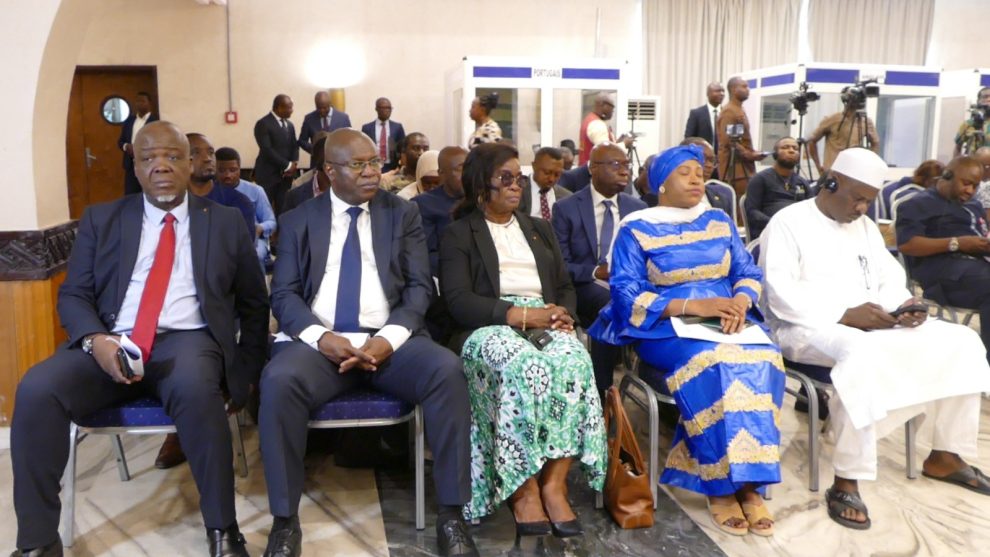Air transport fares within the West African sub-region are the highest worldwide, according to Mr. Sédiko Douka, the ECOWAS Commissioner for Infrastructure, Energy and Digitalization.
Speaking in Lomé, Togo, on Tuesday at the opening of the Sixth Legislature ECOWAS Parliament Delocalised meeting, Mr. Douka revealed that recent studies indicate air transportation within West Africa accounts for less than 10% of travel, the lowest figure globally. He stated that this situation has become a significant barrier to the region’s integration efforts.
The theme of the meeting is “Air transport as a means of integrating the peoples of West Africa: Strategy for reducing the cost of air ticket.”
Mr. Douka conveyed the ECOWAS leadership’s concern over this issue, stating that the Commission has been tasked with coordinating and harmonizing the air transport policies, programs, and projects of its Member States. He underscored the importance of the Lomé meeting in addressing this disparity, noting that it has the full support of the Heads of State and Government.
He said, “The air tariff in West Africa remains excessively high compared to other countries in the world. In this case, it is less expensive to make the flight to another African country than to travel between two countries in ECOWAS. This situation is counterproductive for the future of the West African region and the collective airspace.”
Mr. Douka also highlighted findings from recent studies in 2024, which showed low growth in air transport in West Africa (less than 10%), compared to significantly higher figures in North Africa (40.4%), Southern Africa (21.4%), and East Africa (20.5%). Comparisons across domestic flights, intra-African travel, major airlines, and airport size also indicated that West Africa lags behind these other regions.
He explained that in line with the Revised ECOWAS Treaty, the Commission is mandated to coordinate and harmonize air transport policies and contribute to initiatives aimed at improving air transport within the region. He referenced a 2017 study on a common policy on fees, taxes, and charges in air transport, with a final report submitted in 2018. This policy has been reviewed, and a task force created to recommend updates and potential reductions or eliminations of certain taxes and charges, aligning with international best practices.

Mr. Douka also noted that during the 65th ordinary session of the Authority of Heads of State and Government in Abuja, Nigeria, in July 2024, the need to make air transport more accessible and affordable by reducing costs was emphasized to support regional integration. This led to a meeting of Ministers responsible for Air Transport in Lomé in November 2024, which outlined modalities for a gradual reduction of taxes, fees, and charges. An Additional Act relating to a common policy on these charges and its implementation strategy was subsequently adopted and endorsed by the ECOWAS Heads of State and Government in December 2024.
The Commissioner stressed the importance of adhering to International Civil Aviation Organization (ICAO) principles of non-discrimination, transparency, appropriate pricing, and user consultation when setting charges. Recommendations to Member States include committing to eliminating all non-compliant taxes, reducing passenger service and security charges by 25%, and reducing the cost of aviation fuel, all aimed at making the region’s air transport more efficient for its 400 million inhabitants.
Mr. Douka also urged the meeting to consider common rules for passenger compensation in cases of denied boarding, cancellation, or significant flight delays within the ECOWAS region.
He emphasized that the task now is for ECOWAS member states to implement these community texts, with an effective start date set for January 1, 2026, providing a 15-month preparation period. He called on the Members of Parliament to strongly engage with their respective member states to raise awareness about the implementation of these acts for the sustainable development of air transport in West Africa, particularly as ECOWAS celebrates its 50th anniversary.





Add Comment